Full circle: Syria to Sicily
- Published
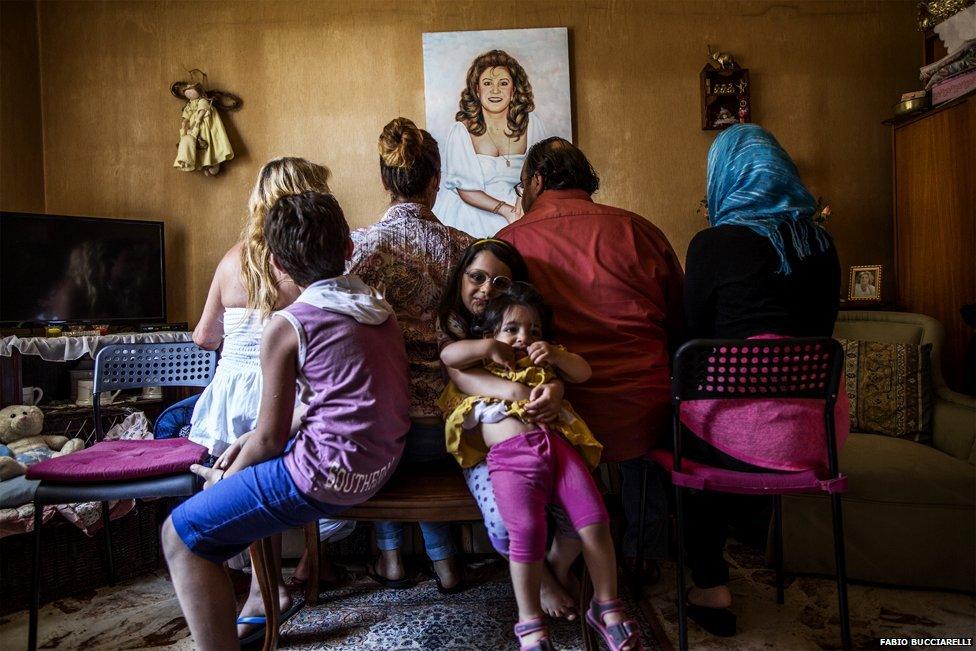
The adult members of the family did not want to be identified - Camastra is not their real name
Alberto Camastra had never lived anywhere but Damascus. But as Syria's war closed in around his family, Alberto's long-dead grandfather - a man he had never met - offered a way out, writes Daniel Silas Adamson.
Towards the end of World War Two, a young woman from Czechoslovakia fell in love with an Italian soldier on the island of Sicily. Helen and Alfonso were married in Catania, Alfonso's hometown, and it was there that Helen conceived a child - one of the millions whose lives began in the chaos and displacement of war.
For reasons long since buried or forgotten, Helen left Sicily before the child was born. She travelled by ship to Syria, where she had a brother and where, in 1945, she gave birth to a baby boy. That boy never knew his father, never learned Italian, never set foot on Italian soil. But he was baptised with an Italian name - Giuseppe Camastra - and registered in Damascus as an Italian national.
And 70 years later, that thread of Italian ancestry provided a lifeline for Giuseppe's children and grandchildren.
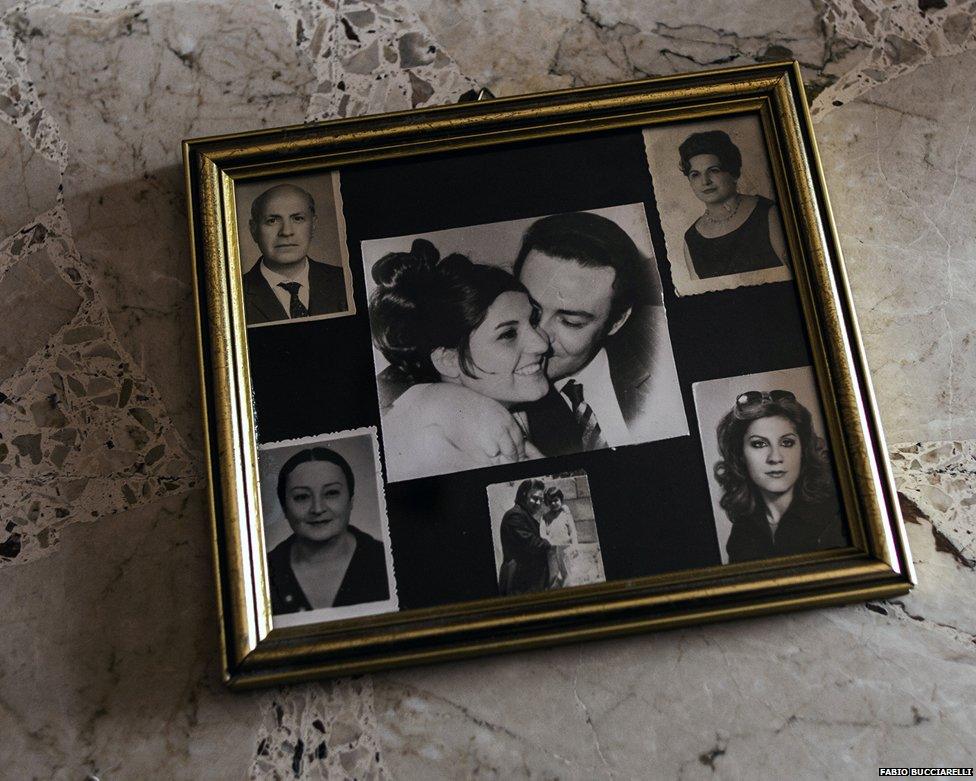
In the spring of 2011, as the revolt against President Bashar Assad spread across Syria, Giuseppe's son, Alberto, received a call from the Italian embassy: "Do you want to get out?" he was asked.
Every Italian in Syria got that call. The Camastras were on the list because, decades after his own father had left Sicily in utero, Alberto was still the holder of an Italian passport.
For the other Italians in the country - tourists, diplomats, priests - accepting the embassy's offer meant going home. But for Alberto it meant becoming a refugee. He had a house in Damascus and job as a car salesman. His oldest daughter, Faten, was half way through a law degree, and he had three young children from another marriage.
"I was afraid. I am 45 years old. I know no Italian. Where will we live in Italy? What will happen to us? Maybe we end up in the street? For three years they called me, but I always said 'No'."
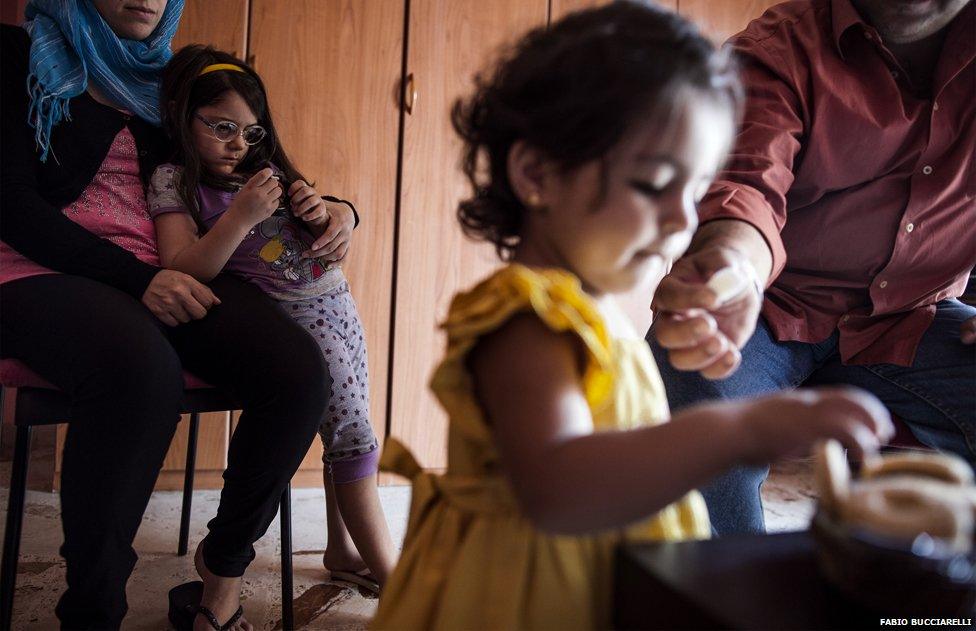
By the summer of 2014, though, the calculation had changed.
In Ramadan of that year, masked and armed men broke into the family home in a village north of Damascus. They arrived without warning in the middle of the night, searching the place room by room before vanishing as quickly as they had come.
Alberto never found out who they were or what they wanted, but he realised that his family was no longer safe. The shelling and gunfire were now all around, so close that the younger children were sleepless with fear. "My son was crying for three days. My wife was frightened. So I said, 'OK, I go.' Even if I end up in the street, it's better than this."
They were the last Italians to leave the country.
About a year later, I met Alberto at a street cafe in Catania.
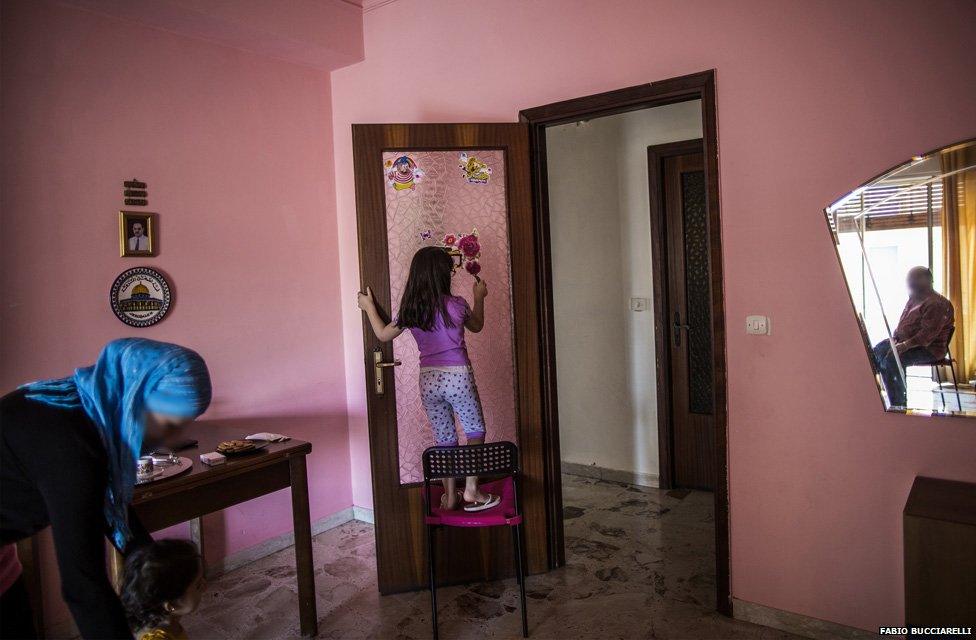
In Syria he had sold what he could sell and taken his wife, his mother, and his children by taxi to Beirut. The family took a plane to Rome and from there, travelling against the stream of refugees making their way up towards Germany, headed south into Sicily.
Catania may have been his grandfather's hometown, but Alberto had no other connection to the place. In Syria he had been the breadwinner, the father of the family. Here, without an income or a word of the language, he struggled to find somewhere safe for the children to sleep. "If I am alone," he said, "I can sleep anywhere, even in the park. But with the children…"
For a few nights they stayed in a cheap hotel, and then in an unfurnished room without water or electricity. Finally, Alberto borrowed what he could from his wife's family in Syria and put down a year's rent on an apartment. Not long after that, he had a heart attack.
Alberto's instinct for hospitality, though, had survived the pressures of war and exile, and the next day he invited me to meet his family at their home on the western edge of the city.
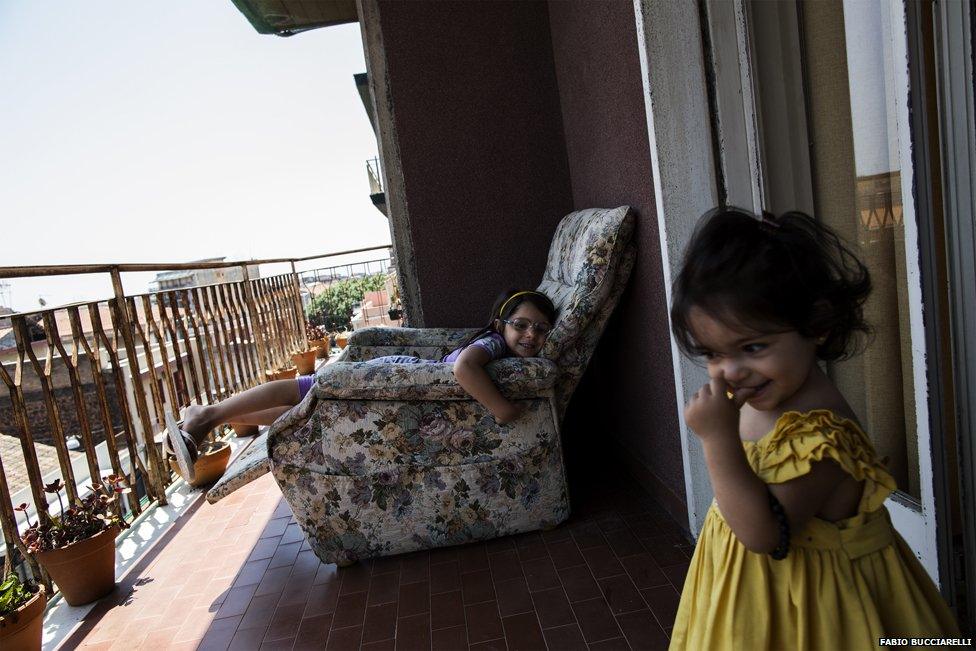
Alberto's mother answered the door. Expecting to find an elderly Syrian refugee, I was surprised by Rena's bleached blonde hair and red heels. In 1967, when she was 16 years old, she had caught the eye of Giuseppe Camastra, the boy conceived in Sicily. He had followed Rena home through the Christian quarter of old Damascus and then sent his mother round to ask for the girl's hand. A year or so later Alberto was born, and 18 months after that Giuseppe died. Rena has been a widow since the age of 19.
Now 64 and surrounded by her grandchildren, Rena showed me round. The apartment was in a tired-looking 1960s block of flats, but the Camastras had painted the walls pink and polished the floor tiles to a high gleam. "It was old and dirty when we came here," she said, "but we made it nice because we are a nice family." On one wall hung a life-size oil painting of Rena, a few years younger and glowing like a Lebanese film star. One another hung a frame with black and white photos taken in Damascus 50 or 60 years ago.
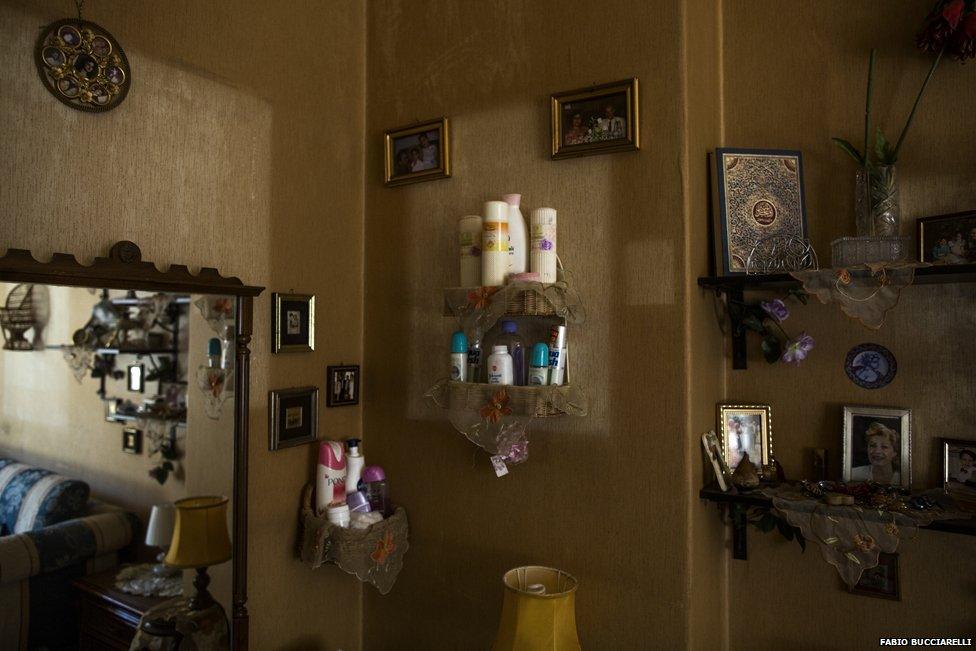
Helen was there, the Czech girl whose Sicilian wartime romance had brought this branch of the Camastra family into existence. So were Rena's own parents, Vasili and Victoria, who had come to Syria from Greece and Lebanon and who had always felt part of the country's religious and ethnic mosaic. These people had known the Mediterranean world as a place of fluidity and movement, of mixed marriages and mixed faiths. "When I was young," Rena told me now, "there was not a big difference between Europe and Syria."
If Rena carries the family's memories, it is her granddaughter, Faten, who carries many of its hopes. In Damascus she had completed four years of a law degree. Already fluent in English and Arabic, she is soaking up Italian from the streets and hoping to start university again in Sicily. At the same time she is working as a nanny for an Italian family, bringing in the money that is soon due on the rent.
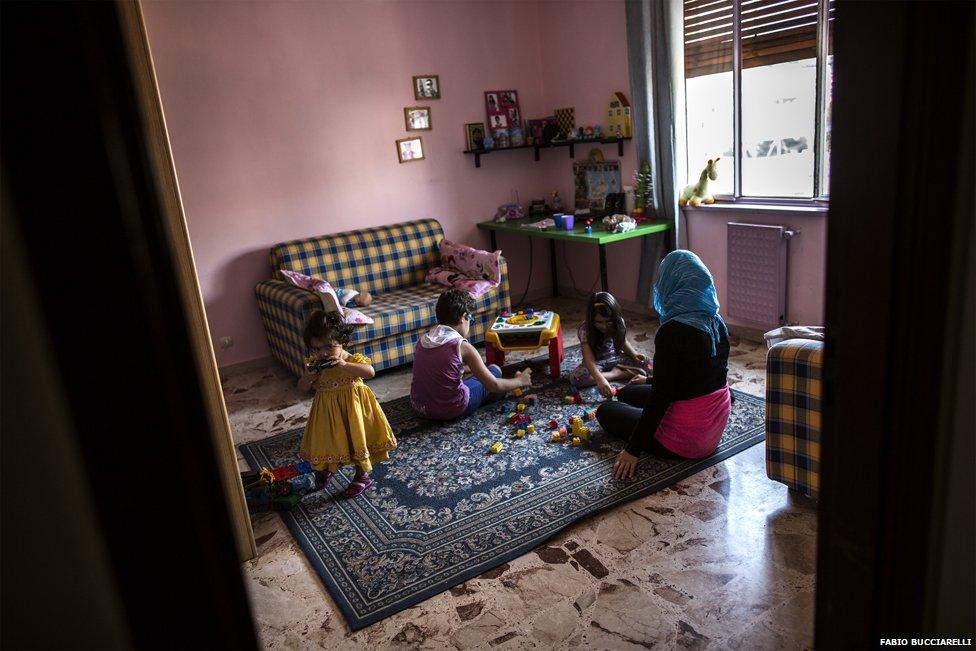
None of this was easy. But for Faten, becoming a refugee had opened up prospects that hadn't existed back home. Even before the war, Syria was no longer the open, optimistic place that her grandmother remembered. It becoming so conservative, she told me, so closed. "I didn't see my chance there. I didn't see that I was going to make something back there, because the mentality is like, 'You're a woman…' But here, yes, I feel hope. Because in Europe, you might get your chance."
How does it feel to be back in the city that her great-grandmother left all those years ago? "I feel grateful for this big circle that my family has travelled," she says. "I feel grateful that I can speak Arabic, that I can understand the music and poetry of the Arabic language. This whole long story, all these different countries, it made me a more complex person."
For Alberto's wife, Muna, there are complexities of a different kind. Her parents and siblings are still trapped in Syria, surrounded by fighting in a town that has run out of food. They are unable to leave their homes let alone flee the country. And if they could, without Italian passports, the journey to Europe would not mean taking the direct flight to Rome - it could mean sailing out into the Mediterranean on a dangerously overcrowded boat.
Muna is glad that her own children are here, scampering around in their bright pink apartment. But as she pours Arabic coffee into tiny porcelain cups, she looks worried. "Muna called her family in Syria yesterday," says Alberto. "They have nothing to eat."
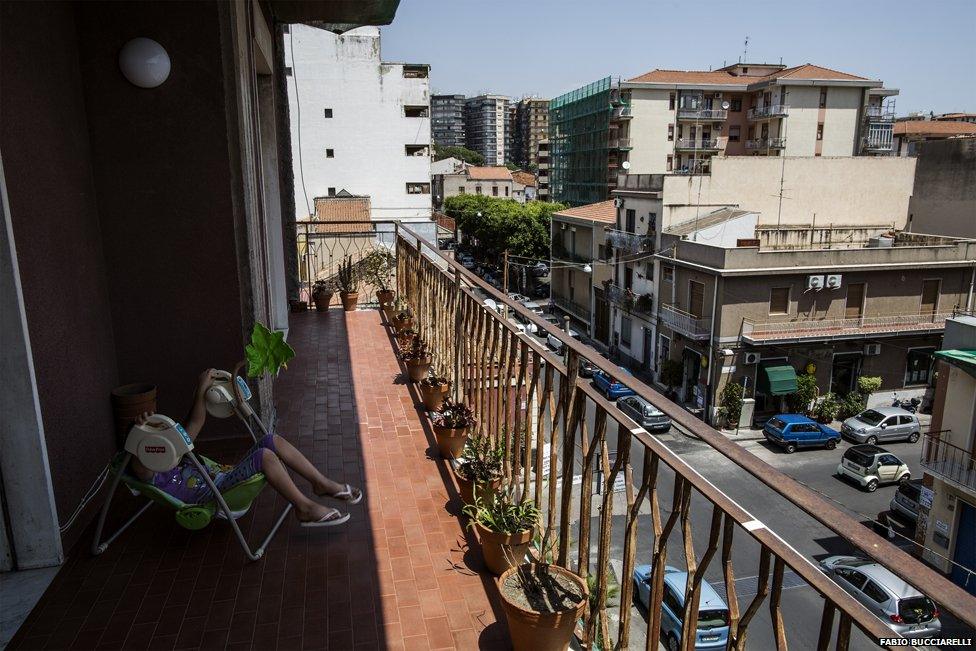
All photographs by Fabio Bucciarelli
Daniel Adamson and Fabio Bucciarelli were reporting for UNHCR
Subscribe to the BBC News Magazine's email newsletter to get articles sent to your inbox.